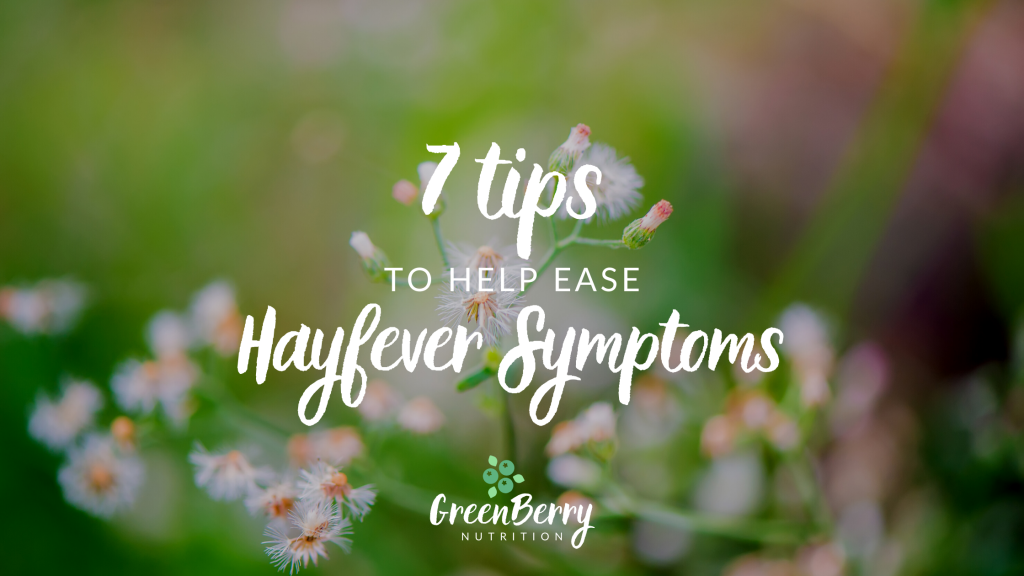Hay fever season starts typically in March and can go into September. Hay fever is associated with inflammatory immune responses in the upper airway, triggered by inhaled pollens of grasses, trees, or weeds. Immune responses activate cells that release histamine, a chemical responsible for hay fever symptoms such as nasal congestion, nasal itching, sneezing, itchy red or watery eyes, itchy throat, skin rashes/hives, feeling exhausted, etc. The symptoms can vary from mild to more severe, and so for people who suffer from hay fever, this can be a difficult time of the year.
Here are some tips that research suggests may help reduce the severity of symptoms and could make hay fever season easier to get through.
1) Eat omega-3 rich foods
Omega-3 fatty acids are found in oily fish such as salmon, sardines, mackerel, as well as in nuts and seeds, including walnuts, flaxseeds, chia seeds, and hemp seeds. Aim for two portions of oily fish a week and sprinkle nuts and seeds daily on salads, porridge, soups, etc. Omega- 3 fatty acids help keep our cell membranes healthy, which research shows could help reduce immune cells’ responses to allergens and decrease allergy symptoms.
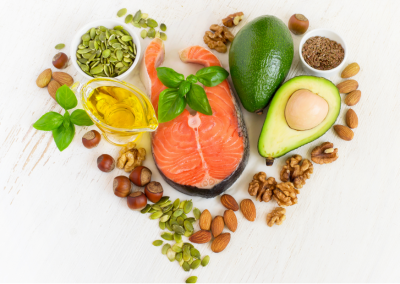
2) Increase intake of quercetin-rich foods
Quercetin is a plant compound found in various fruits and vegetables such as garlic, onions, leeks, apples, berries, broccoli, asparagus, kale, etc. Quercetin has been shown to have antiallergenic properties via inhibiting histamine production, helping lessen hay fever symptoms.
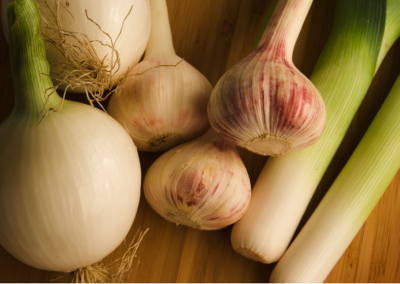
3) Keep hydrated
Staying hydrated helps to break down mucus and reduce nasal congestion. Drink plain water throughout the day, and try herbal teas. Some herbal teas have shown to alleviate symptoms of hay fever include:
- Green tea – green tea contains active plant compounds such as catechins, which have been shown to help fight allergic reactions by preventing histamine-producing cells’ activation.
- Nettle tea – is shown to inhibit the production of inflammatory chemicals in the upper airway, which may help relieve hay fever symptoms.
- Ginger tea – also known for its anti-inflammatory properties.
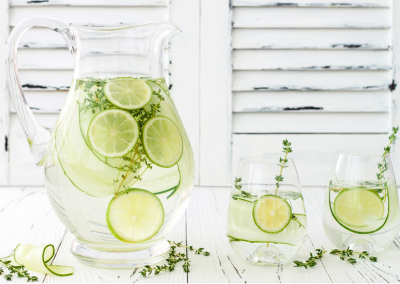
4) Increase intake of vitamin C-rich foods
Vitamin C-rich fruits and vegetables such as red and green peppers, spinach, broccoli, kiwi, oranges, lemon, kale, watercress, cabbage, brussels sprouts, may help curb your hayfever symptoms this year. Vitamin C has been shown to prevent the histamine release by the white blood cells, as well as help remove the histamine from the body.
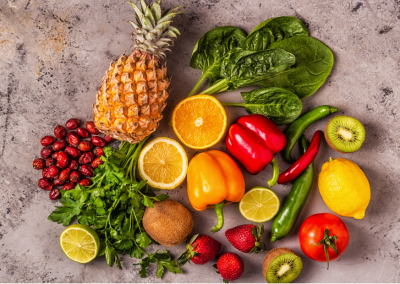
5) Avoid alcohol
Alcohol contains histamine and other substances such as acetaldehyde and ethanol, which have been shown to interfere with the histamine’s breakdown in the gastrointestinal tract, contributing to increased histamine levels in the body and worsening hay fever symptoms.

6) Avoid processed food, refined carbohydrates, sugar, sugar-containing food, trans fats, and a high intake of red meat and saturated fats.
High intake of these foods has been shown to contribute to systemic and airway inflammation and increased airway responsiveness to allergens, making hay fever symptoms worse.

7) Get Vitamin D
Vitamin D has a role in regulating immune responses, and research suggests that lower vitamin D levels might be associated with an increased hay fever risk. To help increase natural Vitamin D levels, try to get 10-15 minutes of sun exposure daily. Also, add Vitamin D-containing food such as salmon, sardines, eggs, mushrooms into your diet.
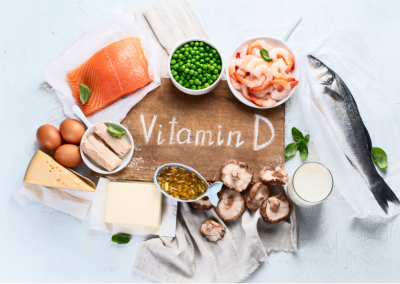
Hopefully, my tips will help you to manage the hay fever season better. If you are still struggling, there could be other issues that might be contributing to your symptoms, including gut issues, food sensitivities/intolerances, etc., which may need to be addressed. For further support, please contact me.
References
Hoff S Seiler H Heinrich J Kompauer I Nieters A Becker N Nagel G Gedrich K Karg G Wolfram G Linseisen J (2005) Allergic sensitisation and allergic rhinitis are associated with n-3 polyunsaturated fatty acids in diet and in red blood cell membranes European Journal of Clinical Nutrition 59 (9) 1071-1080
Masuda S Maeda-Yamamoto MM Usui S Fujisawa T (2014) ‘Benifuuki’ green tea containing o-methylated catechin reduces symptoms of Japanese cedar pollinosis: a randomized, double-blind, placebo-controlled trial Allergology International 63 (2) 211-217
Mlcek J Jurikova T Skrovankova S Sochor J ( 2016) Quercetin and its anti-allergic immune response Molecules 21(5):623 doi:103390/molecules21050623
Nihlen U Greiff LJ Nyberg P Persson CGA Andersson M (2005) Alcohol-induced upper airway symptoms: prevalence and co-morbidity Respiratory Medicine 99 (6) 762-769
Rosenkranz RR Rosenkranz SK Neessen KJJ (2012) Dietary factors associated with lifetime asthma or hayfever diagnosis in Australian middle-aged and older adults: a cross-sectional study Nutrition Journal 11 (1):84
Thornhill SM Kelly AM (2000) Natural treatment of perennial allergic rhinitis Alternative Medicine Review 5 (5) 448-454
Tian HQ Cheng L (2017) The role of vitamin D in allergic rhinitis Asia Pacific Allergy 7 (2) 65-73

